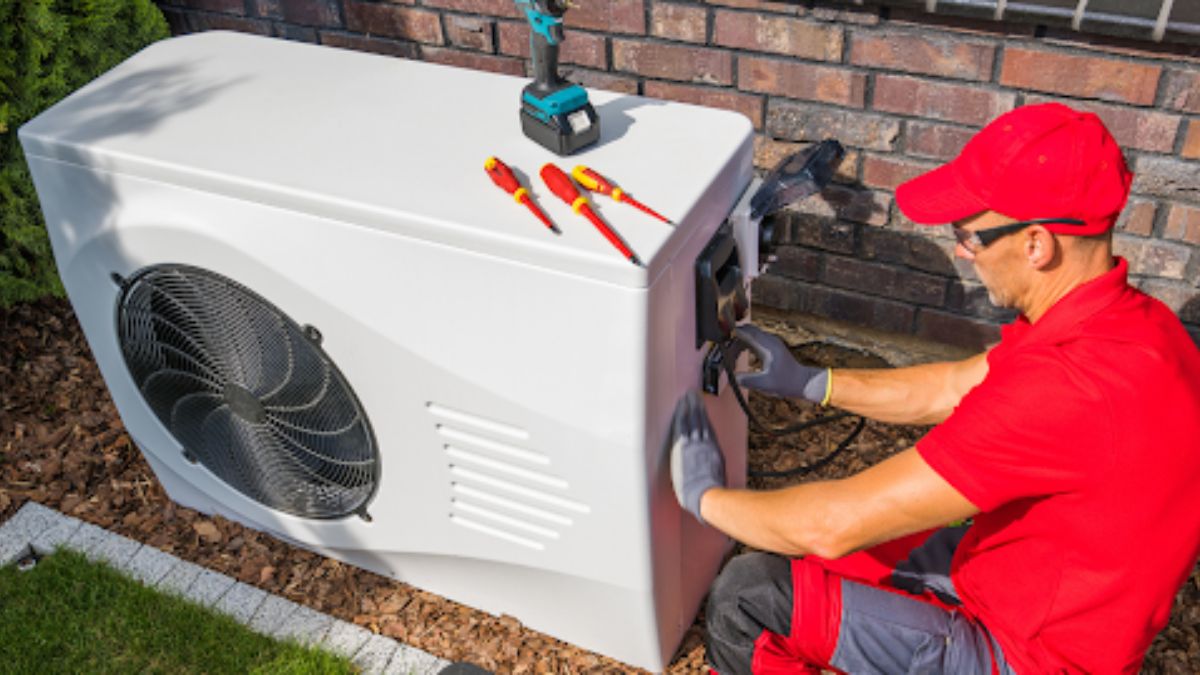Weather in Texas shifts dramatically from hot summer to sudden cold fronts in winter. The state has a very unpredictable climate all year round. It will be sweltering heat one day, and the temperature drops the next day. The unpredictability of weather leads to inefficiency and breakdown in the HVAC systems. So, you must ensure your HVAC does not get out of control during peak weather conditions.
TL;DR
- Extreme weather straining your system requires regular maintenance.
- For power outages, keep backup generators and smart thermostats.
- Poorly maintained systems increase maintenance costs.
- Schedule professional inspections when the weather frequently changes to make sure extreme weather does not damage the system entirely.
Why Preparing HVAC is needed for Extreme Weather Conditions?
Extreme weather is becoming common globally. This is increasing the demand for the power grid. Sometimes, it leads to outages. It directly affects the heating and cooling system.
According to Francis Kaspar, an expert at The Chill Brothers, proper preparation of the HVAC will save Texas homeowners. His expertise in handling the demand in these areas made him understand the sudden surge in calls for HVAC fixtures. Kasper focuses more on timely maintenance. It can prevent costly breakdowns when you need it the most.
But what should you do to prepare your HVAC system for extreme weather conditions? You should regularly maintain the system, prepare for summer and winter, and keep some emergency backups planned.
Regular Maintenance
Francis Kasper advised that checking needs to be done at least once annually. It prevents breakdowns at peak times like extreme heat or cold winters.
Routine checking helps efficient running and reduces energy consumption. Regular checking can catch minor issues before they cause major problems. Thus, you can save time and money. The annual checking must be done by local professionals. Hire HVAC professional like The Chill Brothers to have an in-depth inspection and run the system smoothly.
Hot Summer Preparation
Summers are brutal in Texas. It is essential to maintain your cooling system in advance. Your air conditioner could struggle in the scorching heat when the temperature soars otherwise.
Here are some simple tips to do that:
- Clean the air filters to maintain smooth airflow
- Check the refrigerant levels to maintain effective AC cooling.
- Inspect the insulators because they keep the air inside cool and reduce energy consumption.
Winter-Ready HVAC
People often forget to mention the sudden cold snaps in Texas. The cold snaps challenge the heating system too. Your HVAC should be prepared for these sudden temperature drops. This is just as essential as the summer preparations.
These are the tips to ensure proper maintenance:
- Test the furnace to make sure they are functioning properly before the cold time comes.
- Check the heat pumps to make sure there is no issue.
- Replace the worn-out thermostats. Upgrade to a programmable or smart one. It will maintain the consistency inside the house and save energy.
Emergency HVAC Preparations
There is no alternative to backups and preparations to face the issues in Texas weather. One thing you can do is keep a reminder of all the schedules you need to check your HVAC system. These are the ways you can do these.
Backup Generators for Power Source
Having generators provide secondary power sources. Your system will stay operational when the main grid collapses suddenly. This is a good backup for extreme weather in Texas.
Generators come in several sizes and shapes. There are portable models to power essential systems to the whole-home generators. This will keep the whole house running. When you select a generator, you have to be aware of your HVAC system’s size. You also need to be aware of the duration and frequency of power outages in your area. Larger whole-home generators will automatically work when power goes out. It makes sure there is no disruption to the HVAC system.
A Smart Thermostat for Balancing the Comfort
Smart thermostats are powerful tools to maintain control of the temperature at home during emergencies. These devices can monitor and adjust the temperature from any place. You have to use your smartphone or other devices to maintain it. If there is an unexpected cold front and you are away, think about how this thermostat will make the home comfortable when you return. You can also keep a safe temperature all year round.
Francis Kaspar says that smart thermostats do more than just control. It helps prevent the system from overworking. It will adjust your temperature based on the weather outside. This will save the system from overworking unnecessarily.
Safety Protection During Outages
Power outage is common in extreme Texas weather. These power outrages can leave your HVAC vulnerable to damage. During a power surge, the electricity is restored. If there are no safeguards, the surge will damage the sensitive parts. Francis suggested the installation of surge protectors for the HVAC system. It’s a small investment to protect the entire system.
Regular Inspections and Early Preparedness
Backup generators and smart thermostats can help you with sudden issues. However, the HVAC system needs to be professionally inspected. Plan ahead for a scheduled check. The licensed technicians can help you in the off-season. They will identify weak points for you. This extends the lifetime of the system. It will reduce the likelihood of breakdowns.
Wrapping Up
You need the year-round HVAC preparation to get the best out from the system in extreme weather conditions. Regular maintenance, emergency prep, and smart upgrades will be your primary steps to tackle the weather-related challenges. But every fixture is not your cup of tea. So, we should know when to let the professionals handle the crucial matters. Make sure you have scheduled an inspection with the HVAC experts if you have not prepared for this season yet.











